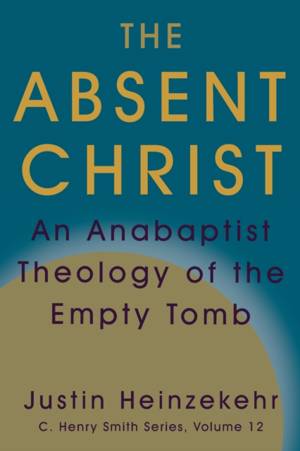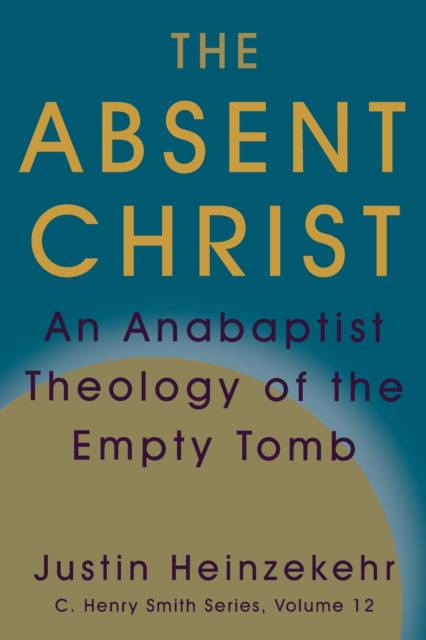
- Afhalen na 1 uur in een winkel met voorraad
- Gratis thuislevering in België vanaf € 30
- Ruim aanbod met 7 miljoen producten
- Afhalen na 1 uur in een winkel met voorraad
- Gratis thuislevering in België vanaf € 30
- Ruim aanbod met 7 miljoen producten
Omschrijving
"Looking for divinity in the faces of those around us, rather than in otherworldly places or merely in our own religious performance, is not the end of theology but rather its beginning. And it puts a healthy spin on a question I have raised for years, 'What is Jesus doing now?' --Joerg Rieger, Distinguished Professor of Theology, Cal Turner Chancellor's Chair in Wesleyan Theology, Director of the Wendland-Cook Program in Religion and Justice, Vanderbilt University
In this C. Henry Smith Series volume 12, Justin Heinzekehr explores the significance of the empty tomb and Jesus' physical absence for Anabaptist ecclesiology and theology in conversation with postmodern philosophy and power analysis. The majority of Anabaptist theology has wrestled with the life and death of Jesus, but what about the biblical accounts of the liminal space in between? In The Absent Christ, Heinzekehr asks how Christ's physical absence defines and challenges the way we live in our communities.
Drawing on a wide variety of philosophers, including Emmanuel Levinas, Alfred North Whitehead, Gilles Deleuze, Elisabeth Schüssler Fiorenza, Karl Marx, and Catherine Keller, Heinzekehr constructs a new Anabaptist theology that takes the gospel stories of Jesus' absence as seriously as his life and teachings.
The result is an Anabaptist theology that retains key insights such as nonviolence and discipleship, interpreted with the benefit of contemporary understandings of class, gender, and racial power.
The Author: Justin Heinzekehr, Goshen, Indiana, is Director of Institutional Research and Assessment and Assistant Professor of Bible and Religion at Goshen College. His most recent work has focused on the intersection of political philosophy, religion, and environmental ethics, with titles such as Organic Marxism (2014) and Socialism in Process (2017).
Specificaties
Betrokkenen
- Auteur(s):
- Uitgeverij:
Inhoud
- Aantal bladzijden:
- 160
- Taal:
- Engels
- Reeks:
- Reeksnummer:
- nr. 12
Eigenschappen
- Productcode (EAN):
- 9781680270143
- Verschijningsdatum:
- 31/07/2019
- Uitvoering:
- Paperback
- Formaat:
- Trade paperback (VS)
- Afmetingen:
- 152 mm x 229 mm
- Gewicht:
- 244 g

Alleen bij Standaard Boekhandel
Beoordelingen
We publiceren alleen reviews die voldoen aan de voorwaarden voor reviews. Bekijk onze voorwaarden voor reviews.









